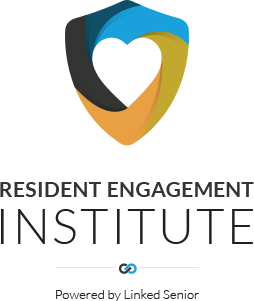Failure to thrive is a clinical diagnosis characterized by weight loss, decreased appetite, diminished physical activity, and decreased engagement with others. These are the outward signs of often more complex issues. When we think of residents who may not be thriving, we think of someone who seems depressed, lonely, bored, or simply put, a person who feels they have no reason to live. This is not a normal part of aging and growing older. In a recent conversation I had with a colleague, she told me about a friend’s mother who has been living in a nursing home for the past two years and living seemingly well there. Her recent death was not due to COVID-19 nor to any specific illness. Instead, the death certificate read: Failure to Thrive.
Research indicates an excess in the number of deaths among older adults since the beginning of the pandemic. A study presented in JAMA by Woolf et al cited a 20% increase in expected deaths and only 67% of those attributed to COVID-19. According to the Centers for Disease Control and Prevention (CDC) data, there was a 12% increase of deaths related to Alzheimer’s disease since the pandemic started.
The death certificates may not specify the Failure to Thrive diagnosis, but we know that without connection, engagement and purpose, a person’s physical and mental health will deteriorate. The longer that goes on, the greater the chance of death. There are too many stories of people living with dementia who have stopped communicating, older adults who used to walk to the dining room and are now unable to walk to the bathroom and those who have been staying in their rooms with little desire to interact with anyone.
How do we transform Failure to Thrive into an invitation to thrive? We know it is more than keeping people active and providing “activities” throughout the day. It is about connection, meaningful engagement, and a sense of purpose. In the early stages of the pandemic, care communities worked to ensure people who lived there remained as active as possible, finding substitutes for group activities, and concentrating on individuals’ needs and preferences. Communication technology was purchased so that residents could maintain contact with family and friends. There have been valiant efforts made by team members in communities, however we continue to see unanticipated decline and even death.
Purpose is defined as “the reason for which something is done or created or for which something exists,” and its absence is one of the reasons why human beings would fail to thrive. Ultimately, one can see purpose as the reason to get up in the morning and what helps define a “good day” for someone. Viktor Frankl famously said that, “…who has a why, can bear any how” referring to the power of purpose for well-being in the face of adversity. The French describe purpose as a “raison d’être” or the reason of being, a concept also reflected in the Japanese model Ikigai, which refers to having a meaningful direction. For the senior living industry, it is about letting our care communities activate, promote, and celebrate purpose with every older adult they serve.
What can we do now, in 2021, to support older adults to thrive? Thriving means that residents have deep relationships with each other and the people who work in their homes. They have a voice in what is happening in their communities. Their opinions matter when it comes to decisions that are being made that directly affect them. Yes, even during a pandemic.
Pioneer Network is the leader of the culture change movement and the principles that guide their movement offer senior living communities a roadmap to purpose:
- Relationships are the fundamental building block of a transformed culture.
- Respond to spirit, as well as mind and body.
- Community is the antidote to institutionalization.
Rebuilding resident engagement requires not only a shift in mindset but an investment in technology to support meaning and purpose for every resident. It is important to note that when resident preference data is stored electronically in resident engagement platforms, staff are**:
- Twice as likely to create individualized plans for each resident.
- 133% more likely to build community and groups.
- 162% more likely to report knowing if residents are engaged in real time.
- 183% more likely to report person centered programs have been implemented.
Finally, for the senior living industry to seize these opportunities, the conversation needs to be elevated to leaders and C-level executives. Activity and life enrichment professionals need to articulate their value from a business perspective and the community’s leadership team needs to incorporate these conversations into their strategies. This conversation is critical because when it is successful, every resident can live meaningfully without fear of failure to thrive.
(This blog was co-written with Penny Cook, President and CEO, Pioneer Network)
References:
- Woolf H., Chapman D.A., Sabo R.T., Weinberger D.M., Hill L., Taylor D. Excess Deaths From COVID-19 and Other Causes, March-July 2020
- 2020;324(15):1562-1564. doi:10.1001/jama.2020.19545
- Denise Lu. “2020 Was Especially Deadly. Covid Wasn’t the Only Culprit.” New York Times. December 13, 2020.
- * Linked Senior Study, 01/05/2021 n:514.
- **From the 2021 Linked Senior State of Resident Engagement Whitepaper, n:700)

